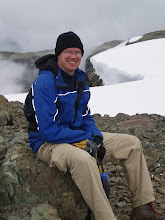Mark Vonnegut, son and introduction author, states, “Writing was a spiritual exercise for my father, the only thing he really believed in.” He then reveals more and more about the man behind such well-crafted work and wit. In this volume the works themselves reveal much about Kurt Vonnegut and about his journey out from the heavy weight of war. I often wondered whether some of these works weren't published sooner (they were published posthumously) because they were too personal and whether they pre-dated Slaughterhouse-Five given that they lack the detachment and satirical intensity of that and later works.
At times the reader seems to be witnessing Vonnegut process his past. For example, a British lance corporal appears in both Spoils and Just You and Me, Sammy (different accounts of his escape from prison), presumably because Vonnegut had weighed his decision to await the Russian advance, something the corporal warns against. His protagonists have clear morals and clash with those who lack them. They question whether upholding their morals in such conditions was worth it — life was so much easier for collaborators. In these stories war seems to be much less about sides than about personal struggle. For example, in The Commandant's Desk liberators bring both good and evil (freedom and continued occupation).
By the end of the collection of essays he seems to have come to terms with the horrors he witnessed, but just enough to still warn others; however, he seems to have also realized the difficulty of communicating such a warning. In Happy Birthday, 1951 an old man attempts to dim the appeal of war to a young boy. In other words you might as well “write an anti-glacier book.” Great Day imagines a future army without war, so much so that they train via a time machine on long-distant battlefields. War will always be present even if it's just a fantasy in a utopia. The title-story takes place in a future where scientists trap the Devil to overcome war, but there's a catch — it takes much effort to maintain peace.
In God Bless you, Dr. Kevorkian, written much later than most of these works he's gained a perspective through which he can argue the faults of war without raw emotion. Kilgore Trout, a recurring character of Vonnegut's, states regarding Kosovo:
NATO should have resisted the nearly irresistable temptation to be entertainers on television, to compete with movies of blowing up bridges … All cities and even little towns are world assets. … The homicidal paranoia and schizophrenia of ethnic cleansing does its worst quickly now, almost instantly, like a tidal wave or volcano … The disease used to take years. One thinks of Europeans killing off the Aborigines … The Tasmanian genocide, incidentally, is the only one of which I've heard which was one-hundred-percent successful.
Armageddon in Retrospect is adorned with ink and pencil sketches that call into question Vonnegut's assertion that the only thing he was good at was writing. The Unicorn Trap is the only story without a backdrop of modern warfare. Although it's set in Norman England, it still wrestles with the morality of conflict:
“Grand, all right,” said Elmer. He was a small man with a large-domed head. His blue eyes were restless with unhappy intelligence. His small frame was laced with scraggly ropes of muscle, the bonds of a thinking man forced to labor.


